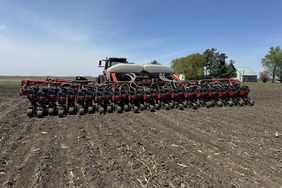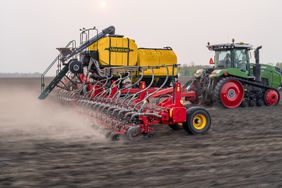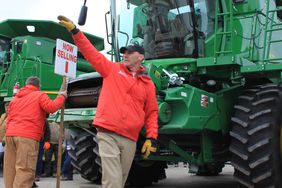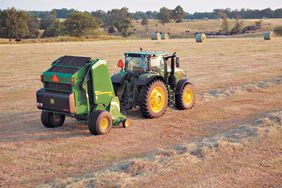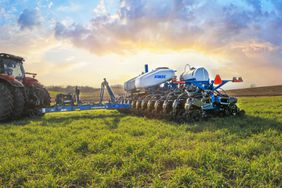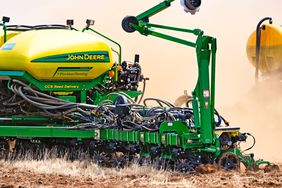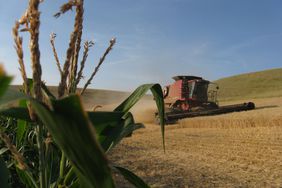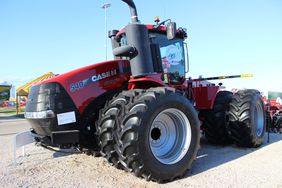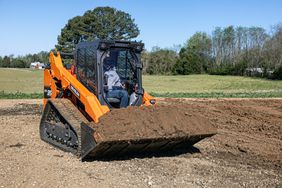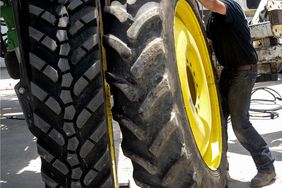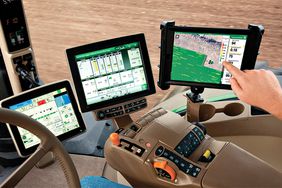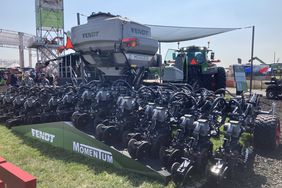:max_bytes(150000):strip_icc()/Joe20Bassett-2000-2705af6b33014d478dadb6fcda898541.jpg)
In 2003, Joe Bassett made a life-changing career decision. The 22-year-old college graduate turned down a job at the University of Iowa's Biology Department so he could return to the family's manufacturing business in Sycamore, Illinois.
After expanding rapidly, the equipment manufacturer had experienced massive growing pains. "The company took on too many big projects, some of which were ahead of their time," says Bassett about the company that was started by his father, Jim, and two partners in 1992. This led to financial difficulties in the late 1990s; downsizing followed. When Joe Bassett made the commitment to join, only four people filled the company's 15,000-square-foot office and manufacturing space.
Given the struggles of the company, it may seem like Bassett joined out of obligation. That wasn't it, he insists. "If people are thinking about whether to join a family business, that's the wrong reason," he says. "The reason we've been able to stay in business for 25 years is because we love what we do. It's a maker's culture."
That culture is a core part of Dawn Equipment, which has grown to 50 employees and 80,000 square feet since Bassett joined the company. As CEO today, Bassett continues this inventor-driven, product-first mentality by remaining very involved in product development.
"I personally design some products" says Bassett, referring to Dawn's new Reflex planter automation system introduced in February. "The most important thing I do is work on products."
While Bassett chose to study physics instead of engineering, he says he has always had a great love for mechanical things. "Physics and engineering are
really like close step-siblings anyway," he says. "As a physics student, I built my own motorcycle, a robotic hand, and a number of other mechanical things."
Even as CEO, Bassett keeps designing products. "The great thing about the team I have is that they let me focus on the product," he says. "I don't actually understand other companies that have CEOs who aren't working on products, because I'm not sure what else I would do."
Bassett admits he is "like an amateur CEO because I have no formal business acumen.
"Frankly, at some point, if the company continues to grow, I may choose to not be the CEO," he continues. "Financial management doesn't push my buttons. I love quality and manufacturing and design."
While he may be willing to step down as CEO, he isn't willing to sell Dawn Equipment.
"I'll never say never, but no, I don't think so," Bassett replies when asked if he would consider an acquisition offer. "There are lots of families working out there who are counting on me. I'm only 36. What would I do that I would enjoy more?"
looking to the future
When he isn't involved in the technical details of designing products, which for Reflex means advancing hydraulic technology, Bassett is focused on the future of rural America and farming. In his vision, he sees a rural landscape where Dawn's two key customer groups work alongside each other.
"In 2014, Dawn made the decision to segment its customer base between the Dawn Equipment and Dawn Biologic brands," says Bassett. The majority of Dawn Equipment customers have more than 2,500 acres of corn and soybeans and invest heavily in technology. Dawn Biologic customers run smaller, more diverse operations and spend significantly less on machinery.
While Bassett is excited about the technology that is allowing Dawn Equipment customers to become more automated, he is fearful for what this means for rural communities.
"What are you supposed to do when you have a town that used to be supported by jobs in farming or other industries that are lost due to automation?" he asks. "That's where Dawn Biologic came in. You can bolster rural communities by having multitiered agriculture with large-scale, automated farming and people involved in smaller-scale food production."
As part of that dream, Bassett wants Dawn to "emerge out of the back of the book and be more of an institutional company," he says. "I want to make a core technology that is part of the planter, not just an accessory."
:max_bytes(150000):strip_icc()/Jessie-Scott-e5d5c2e8613948b4a0b503787be9d971.jpg)
